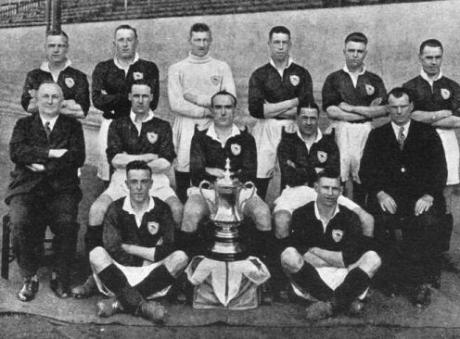ARSENAL TROPHIES
Arsenal have been winning silverware since 1889 – 21 years before Chelsea were even founded.
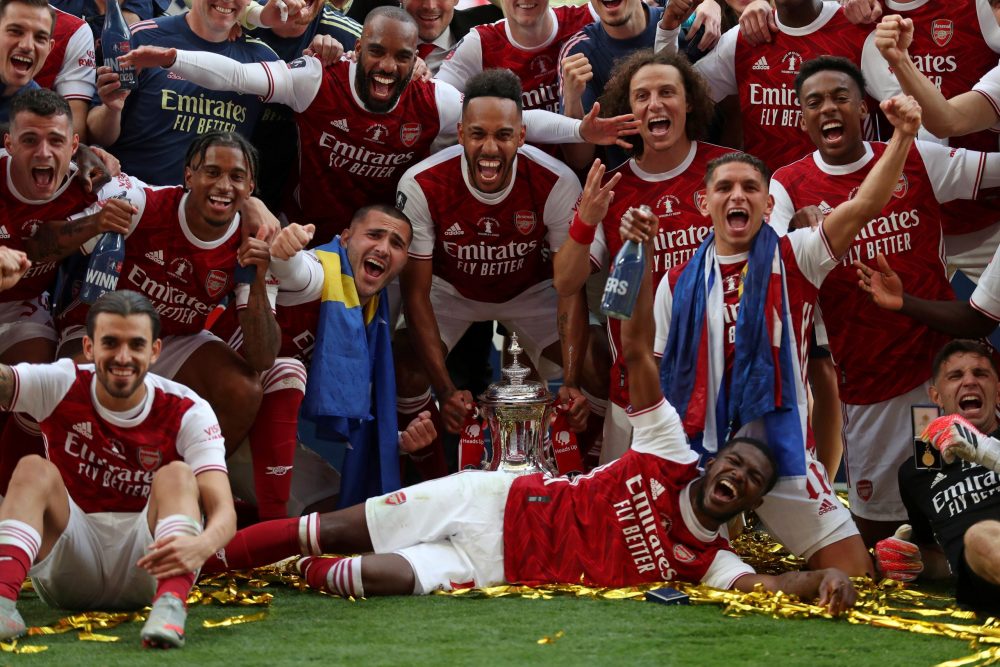
Let’s take a look at just how many trophies Arsenal have won throughout their 130-year history.
All Arsenal Trophies
- Kent Senior Cup – 1889–90 (1)
- London Charity Cup – 1889–90 (1)
- London Challenge Cup – 1921–22, 1923–24, 1930–31, 1933–34, 1935–36, 1953–54, 1954–55, 1957–58, 1961–62, 1962–63, 1969–70 (11)
- London Senior Cup – 1890–91 (1)
- Inter-Cities Fairs Cup – 1969–70 (1)
- UEFA Cup Winners’ Cup – 1993–94 (1)
- FA Community Shield – 1930, 1931, 1933, 1934, 1938, 1948, 1953, 1991, 1998, 1999, 2002, 2004, 2014, 2015, 2017, 2020, 2023 (17)
- FA Cup – 1929–30, 1935–36, 1949–50, 1970–71, 1978–79, 1992–93, 1997–98, 2001–02, 2002–03, 2004–05, 2013–14, 2014–15, 2016-17, 2019-2020 (14)
- First Division (until 1992) and Premier League – 1930–31, 1932–33, 1933–34, 1934–35, 1937–38, 1947–48, 1952–53, 1970–71, 1988–89, 1990–91, 1997–98, 2001–02, 2003–04 (13)
- League Cup – 1986–87, 1992–93 (2)
- Mercantile Credit Centenary Trophy – 1988–89 (1)
- Southern Professional Floodlit Cup – 1958-59 (1)
Adding all these together, Arsenal have won 64 trophies, however, we’re not Tottenham, so what about just trophies that mean something?
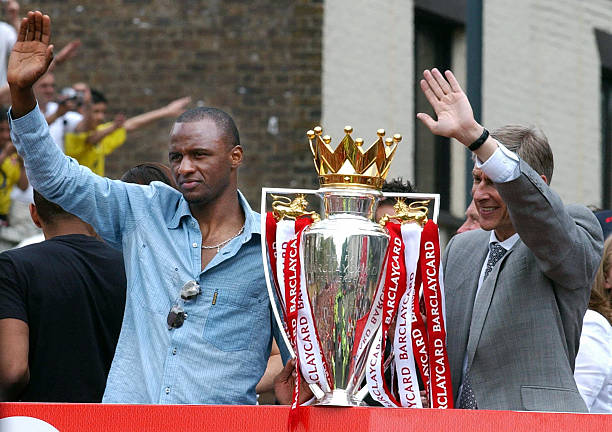
Arsenal trophies that matter
If you want to just count the ‘real trophies’ as most people do, i.e. the League Cup (although does anyone but Jose Mourinho and Tottenham really count this as a real trophy?), Premier League/First Division, FA Cup and European, ARSENAL HAVE WON 30 TROPHIES.
Not bad for a club that supposedly has an empty trophy cabinet, eh?
For the record, Tottenham have 17 which drops to 13 if you remove the League Cup. They have won the league just twice.
Chelsea have eight from before Roman Abramovich started buying trophies and a total of 24 (19 if you remove League Cups). They have won the league six times, but managed that only once before Abramovich purchased the club.
Arsenal’s 5 greatest wins at Wembley
1929/30 FA Cup final – Huddersfield Town, 2-0
In 1930, Alex James and Jack Lambert scored as Arsenal won their first ever major trophy in their first match at Wembley. It was also the first time the BBC ever paid for the rights to broadcast a match.
Three years earlier, the Gunners disappointingly lost their first final, 1-0 against Cardiff City. The match gave them the chance to put things right, under legendary manager Herbert Chapman. Tom Parker captained the side to victory and set Arsenal on the way to the record 14 FA Cups they hold today.
1970/71 FA Cup final – Liverpool, 2-1
Arsenal won the 1971 final in dramatic fashion, coming from behind to beat Liverpool in extra time. The Gunners were trying to complete a league and cup double, after winning the title at White Hart Lane. They had to beat Liverpool to do so though, in front of 100,000 fans.
After 90 minutes, the game remained 0-0, with both teams struggling to get control of the match. Liverpool quickly took the lead in extra-time, and almost made it 2-0 when Bob Wilson was called into action. Fortunately, Eddie Kelly scored the equaliser to keep the Gunners alive. He was the first substitute ever to score in an FA Cup final.
Then Charlie George added a second with minutes to go, and followed the goal up with his famous celebration, lying on his back. Arsenal completed their double winning season and were cheered off the pitch by both sets of fans.
1978/79 FA Cup final – Manchester United, 3-2
Arsenal’s first match at Wembley against Manchester United contained even more late drama. The Gunners went into the final five minutes of the 90 minutes 2-0 up, thanks to earlier goals from Brian Talbot and Frank Stapleton.
United then pulled it back through and 86th minute goal from Gordon McQueen and an 88th minute effort from Sammy McIlroy.
Just as the match looked to be heading to extra time, Alan Sunderland scored in the 89th minute to win the cup for Arsenal. The match is now more commonly known as the ‘five minute final’.
2013/14 FA Cup final – Hull City, 3-2
Arsenal’s first cup final win at the new Wembley involved a comeback from 2-0 down to end a 9-year trophy drought. With a Champions League final loss and a number of faltering title challenges, the Gunners had gone year-after-year without winning anything, despite a number of talented teams.
During that time, Arsenal lost both their matches at the new national stadium. Fortunately, the Gunners ended that losing run by beating Wigan Athletic on penalties. They’d need to go one further to end the drought, and faced underdogs Hull City.
It should’ve been a walkover, but instead the team crumbled in the first 10 minutes. Hull raced into a 2-0 lead, and honestly should’ve been three up before Arsenal remembered there was a game on. Santi Cazorla’s free-kick brought the tie back to life, before Laurent Koscielny levelled things up in the second half.
Aaron Ramsey won the match in extra-time, sparking celebrations expressing equal amounts of joy and relief from players, manager and fans.
2016/17 FA Cup final – Chelsea, 2-1
A few years later, Arsenal returned under entirely different circumstances. This time, the Gunners were the underdogs, facing the Premier League champions and London rivals, Chelsea. Every pundit and expert around seemed to think the Blues would walk the match.
Instead, Arsenal took a shock lead through Alexis Sanchez. Chelsea responded in the second half through Diego Costa, but Aaron Ramsey was on hand again to restore the lead. The true heroes were the Gunners’ defence. Laurent Koscielny got himself banned the previous week, so Nacho Monreal, Per Mertesacker and Rob Holding had to combine in a makeshift back-three.
The trio did their job admirably, showing fight and determination to shut their opponents down. Costa needed a deflection to finally breach their resistance, and even then it wasn’t enough. It might not have been the most exciting final ever, but for me it was one of the most satisfying.
1930: Arsenal’s first FA Cup final win
Today, largely thanks to Arsène Wenger’s influence, Arsenal are FA Cups kings with 14 in their trophy cabinet but Arsenal’s first FA Cup came 90 years ago, at the end of the 1929/30 season.
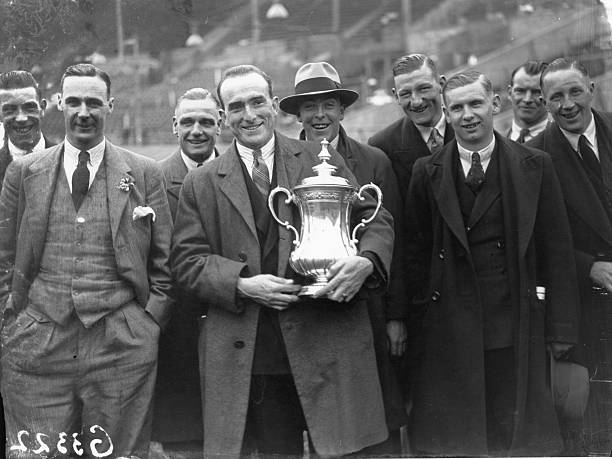
At the time, the Gunners had been around for over 40 years, but were still yet to win their first major trophy. However, the club had been edging closer in the cup over the previous few years.
In the league, Arsenal weren’t doing anything particularly exciting, finishing 11th, 10th and 9th in the three seasons prior to 1929/30. But just like in recent seasons today, the FA Cup was bringing something extra out of the side, and they’d finished as runners-up, semi-finalists and quarter-finalists.
But they still needed to go that one step further and win the competition, to really write their name in the history books, and take that extra step forward as a club.
Just as it is today, the Gunners didn’t enter the tournament until the third round proper.
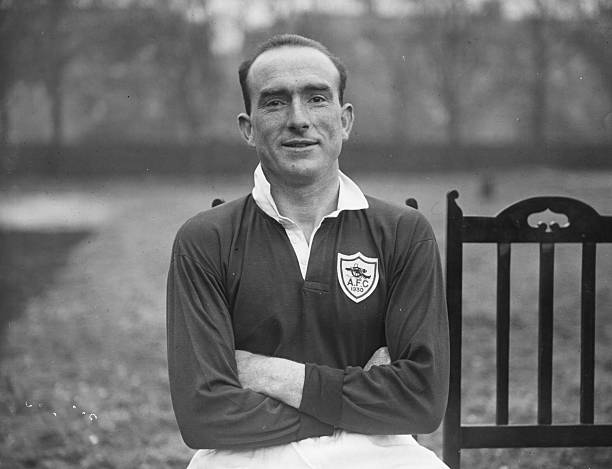
Before that there were two preliminary rounds, four qualifying rounds and of course the first two rounds proper, all of which culminated in 20 lower-league teams being added to the mix. They would be joined by 22 teams from the second division and 22 from the first.
Arsenal drew one of those teams from the second division, Chelsea.
Nonetheless, the match drew a fair crowd with over 55,000 fans turning up to watch the game at Highbury. The Gunners won 2-0, courtesy of goals from Jack Lambert and Cliff Bastin and it was onto the next round.
The fourth round brought a tougher test, in Birmingham City. Birmingham were one of Arsenal’s mid-table rivals in the first division at the time, so they were likely to put up more of a fight than Chelsea in the first round. So it proved, as Cliff Bastin scored again along with David Jack, but the Gunners were held to a 2-2 draw, forcing a replay away from home.
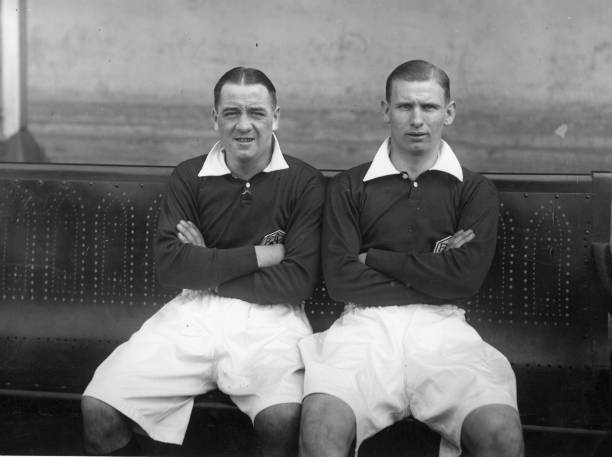
The replay wasn’t much more straight-forward, and it took a penalty from Alf Baker to separate the two sides, as Arsenal eventually triumphed 1-0.
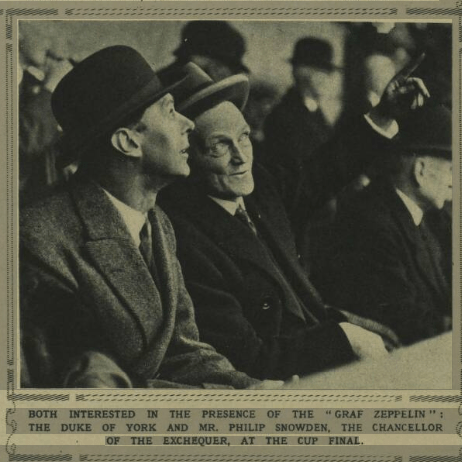
Now in February, Herbert Chapman’s side prepared for their fifth round match against recently promoted Middlesbrough. The Boro had finished top of the second division the previous season, and were holding their own in the country’s top league.
Arsenal had to travel to the North-East for the match at Ayresome Park, but ended up with another comfortable win. It was a repeat of the opening round, with the same scoreline (2-0) and goalscorers, Lambert and Bastin.
Bastin in particular was making a name for himself with goals in every round so far.
But against high-flying West Ham at Upton Park, it was Lambert and Baker who kept their tallies growing, with two from Jack and one from Alf to walk away 3-0 winners. On paper this should’ve been the hardest tie so far, but Arsenal were on a roll and moved onto the semi-finals with ease.
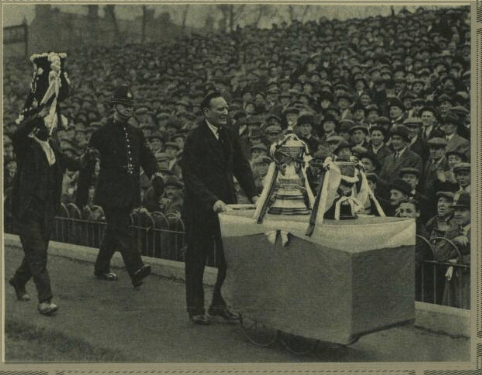
The Gunners drew Hull in the semis, to be played at the neutral venue of Elland Road in Leeds. For the fourth time in six matches, the team scored twice, thanks to David Jack and Cliff Bastin, but it ended in a draw. Back then, a draw in an FA Cup semi-final meant a replay, rather than extra time, so four days later it was off to Villa Park for the rematch.
David Jack got on the score-sheet again in a 1-0 win, and sent the club to their second final in four years.
So. on 26th April 1930, Arsenal faced Huddersfield Town in front of 92,488 fans at Wembley.
Goalscorers in the previous rounds Alf Baker, David Jack, Jack Lambert and Cliff Bastin all made the team for the final, but it was the team’s creative genius who ended up breaking the deadlock on the day.
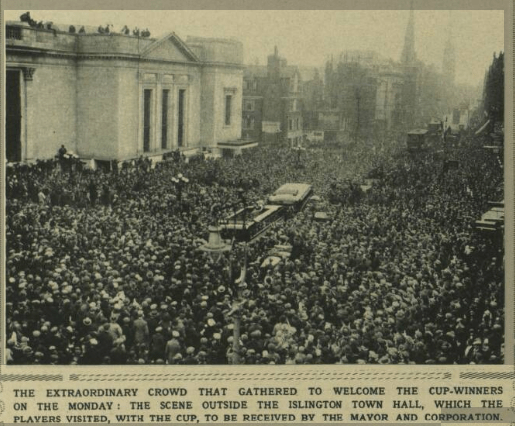
Alex James had been signed up by Herbert Chapman at the start of that season, but after a slow start he’d begun to impress fans with his ball control and passing abilities. On this occasion he turned goalscorer, playing a one-two with Bastin before firing into the net from range.
He was back to providing the goals before long, as a long pass found Jack Lambert to add a second and secure Arsenal’s first FA Cup victory, and first major trophy.
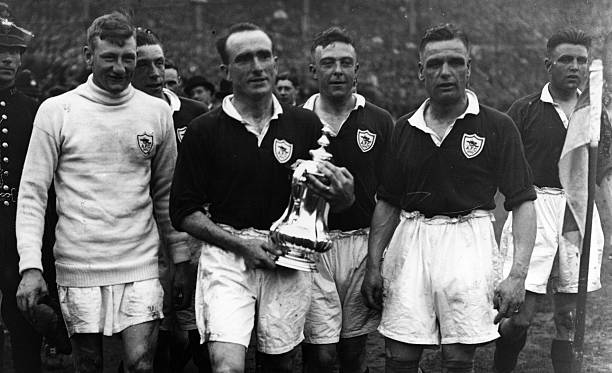
The Gunners stayed at Wembley celebrating until even the crowd had gone home, and it was a major turning point in the history of the club, considering the successes to come in the 1930s.
